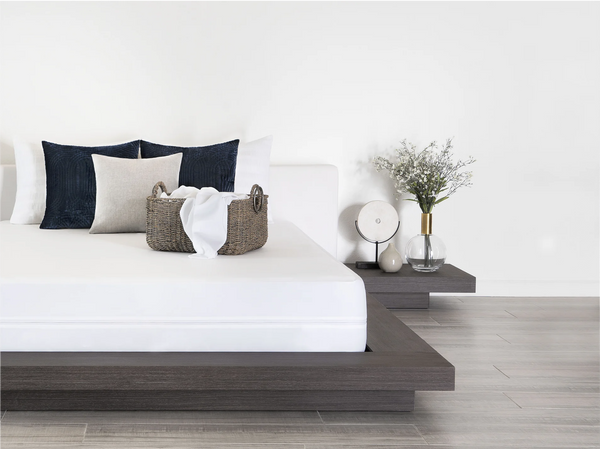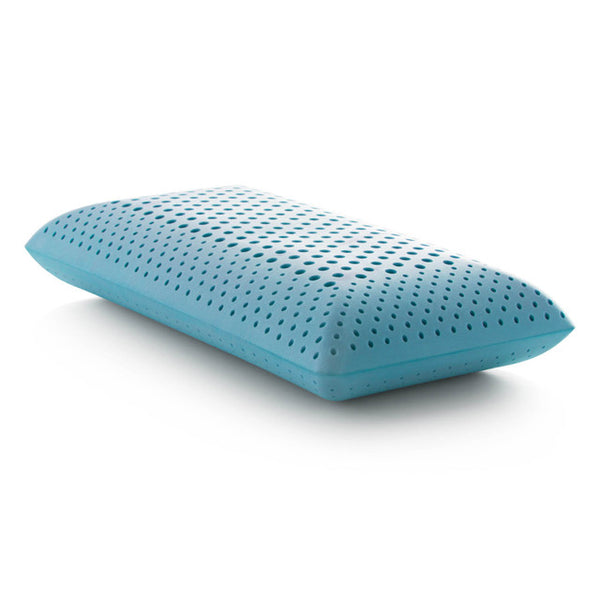

The key to a good night's sleep lies in following certain tips and strategies. Whether it's creating a relaxing environment, establishing a bedtime routine, or avoiding technology before bed, there are several factors that can contribute to better sleep. In this blog post, we will explore ten tips for a good night's sleep that have been recommended by sleep experts and professionals.
By implementing these tips, you can improve the quality and duration of your sleep, leading to increased energy levels, improved mood, and better overall health. We will discuss the importance of having a regular sleep pattern, creating a restful environment, and avoiding certain foods and substances that can interfere with sleep.
Additionally, we will delve into the role of exercise, relaxation techniques, and managing stress in promoting better sleep. Whether you struggle with falling asleep or staying asleep throughout the night, these tips will provide practical guidance for achieving a more restful night's sleep.
So, if you're ready to improve your sleep and wake up feeling refreshed and rejuvenated, let's dive into these ten tips for a good night's sleep.
- Create a Relaxing Environment: Make sure your bedroom is cool, dark, and quiet. Use comfortable bedding and consider using earplugs or a white noise machine to block out any distracting sounds.
- Establish a Bedtime Routine: Develop a consistent routine before bed to signal to your body that it's time to sleep. This could include activities like reading a book, taking a warm bath, or practicing relaxation techniques.
- Avoid Technology Before Bed: The blue light emitted by screens can interfere with your sleep cycle. Avoid using electronic devices such as smartphones, tablets, and laptops for at least an hour before bed.
- Stick to a Regular Sleep Schedule: Try to go to bed and wake up at the same time every day, even on weekends. This helps regulate your body's internal clock and can improve the quality of your sleep.
- Avoid Stimulants: Limit your intake of caffeine and nicotine, as they can interfere with your ability to fall asleep. Also, avoid consuming large meals and excessive fluids close to bedtime.
- Exercise Regularly: Engaging in regular physical activity can promote better sleep. Aim for at least 30 minutes of moderate exercise most days of the week, but avoid exercising too close to bedtime.
- Practice Relaxation Techniques: Techniques like deep breathing, meditation, and progressive muscle relaxation can help calm your mind and prepare your body for sleep. Experiment with different techniques to find what works best for you.
- Manage Stress: High levels of stress can make it difficult to fall asleep and stay asleep. Find healthy ways to manage stress, such as through journaling, talking to a trusted friend or family member, or engaging in hobbies and activities that you enjoy.
- Avoid Napping: While a short power nap can be beneficial, avoid napping for too long or too late in the day, as it can interfere with your ability to fall asleep at night.
- Seek Professional Help if Needed: If you consistently struggle with sleep despite implementing these tips, consider seeking help from a healthcare professional or sleep specialist. They can evaluate any underlying sleep disorders or provide additional guidance for improving your sleep.
By incorporating these tips into your daily routine, you can create the ideal conditions for a good night's sleep. Remember, everyone's sleep needs are different, so it may take some trial and error to find what works best for you. With patience and persistence, you can achieve a more restful night's sleep and reap the benefits of improved sleep quality.
Establishing a Consistent Bedtime Routine
Establishing a consistent bedtime routine is essential for getting a good night's sleep. One important aspect of a bedtime routine is promoting a consistent sleep schedule. This means going to bed and waking up at the same time every day, even on weekends.
When you stick to a regular sleep schedule, your body becomes accustomed to a specific sleep-wake cycle, making it easier to fall asleep and wake up refreshed.
Prioritize Your Sleep
To promote a consistent sleep schedule, it's important to prioritize your sleep and make it a priority in your daily routine. Avoid staying up late or oversleeping on weekends, as this can disrupt your body's internal clock. Instead, try to stick to a consistent sleep schedule, even on weekends, to maintain a regular sleep pattern.
Engage in Relaxing Activities
Engaging in relaxing activities before bed is another important component of a bedtime routine. This helps to signal to your body that it's time to wind down and prepare for sleep.
- Avoid stimulating activities, such as exercise or using electronic devices, in the hours leading up to bedtime.
- Opt for activities that promote relaxation, such as reading a book, taking a warm bath, or practicing relaxation techniques like deep breathing or meditation.
Create a Relaxing Environment
Creating a relaxing environment in your bedroom can also help promote a restful night's sleep.
- Make sure your bedroom is cool, quiet, and dark.
- Use curtains or blinds to block out any light from outside.
- Consider using earplugs or a white noise machine to drown out any noise that may disturb your sleep.
Incorporating these strategies into your bedtime routine can help promote a consistent sleep schedule and create a relaxing environment that promotes quality sleep. By establishing a bedtime routine that includes these elements, you'll be setting yourself up for a restful night's sleep and waking up feeling refreshed and rejuvenated. Make it a priority to establish a consistent sleep schedule and engage in relaxing activities before bed to improve your sleep quality.
Investing in a Quality Mattress and Pillows for Better Sleep
Investing in a quality mattress and pillows is essential for creating a sleep-friendly environment. A good mattress can make a world of difference in the quality of your sleep. It provides the necessary support for your body, relieving pressure points and promoting proper spinal alignment.
When choosing a mattress, consider the following factors:
- Firmness: Choose a mattress that offers the right level of firmness for your comfort.
- Material: Different materials, such as memory foam or latex, can provide different levels of support and comfort.
- Size: Select a mattress that fits your needs and bedroom space.
Pillows are also important for a good night's sleep. They support your head and neck, aligning your spine and relieving any tension or discomfort. Just like mattresses, pillows come in different types and materials to suit various sleep preferences.
Consider the following when choosing a pillow:
- Firmness: Decide whether you prefer a firm or soft pillow.
- Material: Choose a pillow material that offers the right level of comfort, such as memory foam or down.
Creating a Sleep-Friendly Bedroom Environment
In addition to investing in a quality mattress and pillows, it is crucial to keep your bedroom dark, quiet, and at a comfortable temperature.
Darkness
Darkness promotes the production of melatonin, the hormone that regulates sleep, so it is essential to create a dark environment for optimal sleep. Consider the following:
- Blackout curtains or blinds: Use these to block out any external light sources, such as street lamps or early morning sunlight.
- Eye mask: If blackout curtains or blinds are not available, consider using an eye mask to achieve the same effect.
Quietness
Keeping your bedroom quiet is equally important. Noise can disrupt your sleep and prevent you from falling asleep or staying asleep throughout the night. Try the following:
- Earplugs or white noise machine: Use these to drown out any unwanted sounds, especially if you live in a noisy area.
- Fan or air purifier: Create a soothing background noise that can help mask any disruptive sounds.
Temperature
Maintaining a comfortable temperature in your bedroom is crucial for a good night's sleep. The ideal temperature for sleep is typically between 60 and 67 degrees Fahrenheit (15 to 19 degrees Celsius). Consider the following:
- Fan or air conditioner: Use these to regulate the temperature and ensure you stay comfortable throughout the night.
- Adjust bedding: If necessary, adjust your bedding accordingly to suit the temperature.
By investing in a quality mattress and pillows and creating a sleep-friendly environment, you can significantly improve the quality of your sleep. Remember that everyone's sleep preferences are unique, so it may take some trial and error to find the perfect mattress , pillows, and bedroom conditions that work best for you. However, the effort is well worth it, as a good night's sleep is essential for overall health and well-being.
The Importance of Limiting Technology Use Before Bed
In today's digital age, it's no secret that technology plays a major role in our lives. From smartphones to tablets and laptops, electronic devices have become a constant companion for many people. However, when it comes to getting a good night's sleep, it's important to limit technology use before bed.
Create a Technology-Free Zone in Your Bedroom
- Keep all electronic devices out of the bedroom, including smartphones, tablets, and laptops.
- Creating a calm and peaceful environment that is conducive to sleep.
- When your bedroom is free from the distractions of technology, your mind can relax and prepare for sleep.
Avoid Electronic Devices Before Bed
- Avoid using electronic devices at least an hour before bed.
- The blue light emitted by these devices can interfere with your body's natural sleep-wake cycle.
- Blue light suppresses the production of melatonin, a hormone that helps regulate sleep.
- By avoiding electronic devices before bed, you are allowing your body to naturally produce melatonin and prepare for sleep.
Engage in Relaxing Activities
Instead of scrolling through social media or watching TV before bed, try engaging in relaxing activities that promote sleep. Reading a book, taking a warm bath, or practicing relaxation techniques like deep breathing can help signal to your body that it's time to wind down and prepare for sleep.
Limiting technology use before bed is crucial for getting a good night's sleep. By creating a technology-free zone in the bedroom and avoiding electronic devices at least an hour before bed, you can improve your sleep quality and wake up feeling refreshed and rejuvenated. So, switch off those devices and create a peaceful environment that promotes restful sleep.
How Your Diet Affects Your Sleep
When it comes to getting a good night's sleep, what you eat and drink can play a significant role. Avoiding stimulants and choosing sleep-inducing foods can help promote better sleep quality. Let's take a closer look at these two aspects.
Avoiding Stimulants
- Caffeine: Caffeine is a well-known stimulant that can interfere with sleep. It's found in coffee, tea, chocolate, and some soft drinks. While it may give you an initial energy boost, it can also make it difficult to fall asleep and stay asleep. It's best to avoid caffeine at least four to six hours before bedtime to give your body enough time to process it.
- Alcohol: Alcohol may make you feel drowsy initially, but it can disrupt your sleep later in the night. It can cause fragmented and restless sleep, leading to frequent awakenings. Avoiding alcohol close to bedtime can help ensure a more restful night's sleep.
- Heavy meals: Additionally, heavy meals before bed can also interfere with sleep. Digesting a large meal requires energy and can cause discomfort, making it harder to fall asleep. It's recommended to have your last meal at least two to three hours before bedtime to allow for proper digestion.
Sleep-Inducing Foods
- Chamomile tea: Chamomile tea is a popular choice due to its calming properties. It contains an antioxidant called apigenin, which binds to certain receptors in the brain that may promote sleepiness. Enjoying a cup of chamomile tea before bed can help relax your mind and prepare you for sleep.
- Almonds: Almonds are a good source of magnesium, which is known to promote relaxation and improve sleep quality. Including a handful of almonds in your evening snack can be a healthy and sleep-inducing option.
- Bananas: Lastly, bananas are a great choice for a bedtime snack. They are rich in potassium and magnesium, both of which are natural muscle relaxants. This can help relax your body and prepare it for sleep. Bananas are also a good source of tryptophan, an amino acid that the body converts into serotonin and melatonin, two hormones that regulate sleep.
How Regular Physical Activity Can Improve Your Sleep Quality
Regular physical activity is not only important for maintaining overall health and well-being, but it can also have a positive impact on your sleep quality. Engaging in regular physical activity during the day can help you fall asleep faster and enjoy a deeper, more restful sleep at night.
When you exercise, your body temperature rises and then drops, which can help promote sleepiness. Additionally, regular exercise can help reduce symptoms of insomnia and sleep apnea.
Ways to Incorporate Physical Activity Into Your Day
There are many ways to incorporate physical activity into your day. You don't have to spend hours at the gym to reap the benefits. Even small amounts of physical activity throughout the day can add up. Consider:
- Taking short walks during your breaks at work
- Taking the stairs instead of the elevator
- Incorporating activities you enjoy, such as dancing, gardening, or playing a sport
The key is to find activities that you enjoy and that you can easily fit into your daily routine.
Consider Exploring Adjustable Beds for Added Comfort and Support
In addition to engaging in physical activity, you may also want to consider exploring adjustable beds for added comfort and support. Adjustable beds allow you to customize the position of your bed to fit your needs.
This can be especially beneficial for individuals who have certain health conditions or who experience discomfort while sleeping. By adjusting the position of your bed, you can find the most comfortable sleeping position for you, which can help improve the quality of your sleep.
Adjustable beds can also provide added support for certain areas of your body, such as your back or legs. This can help alleviate pain and discomfort, allowing you to sleep more comfortably throughout the night. If you have specific health concerns or if you simply want to enhance your sleep experience, it may be worth considering investing in an adjustable bed.
Take Steps to Prioritize Your Sleep
Incorporating physical activity into your day and exploring adjustable beds are just two strategies that can help improve the quality of your sleep. Remember that everyone's sleep needs are different, so it's important to find what works best for you.
Whether it's going for a walk, practicing yoga, or investing in an adjustable bed, taking steps to prioritize your sleep can have a profound impact on your overall health and well-being. So, why not start today?
Benefits of Incorporating Relaxation Techniques into Your Bedtime Routine
Incorporating relaxation techniques into your bedtime routine can greatly improve your sleep quality and overall well-being. Many people find it difficult to wind down and relax before going to bed, especially after a long and stressful day. However, by dedicating a few minutes to relaxation techniques, you can create a more peaceful and calming atmosphere that prepares your mind and body for sleep.
Deep Breathing
- Key phrase: One effective relaxation technique is deep breathing.
- Taking slow, deep breaths can help slow down your heart rate and activate your body's relaxation response.
- Try inhaling deeply through your nose for a count of four, holding your breath for a count of seven, and exhaling slowly through your mouth for a count of eight.
- Repeat this cycle a few times and focus on your breath to promote a sense of calmness and relaxation.
Progressive Muscle Relaxation
- Key phrase: Another technique to consider is progressive muscle relaxation.
- This involves tensing and then releasing each muscle group in your body, starting from your toes and working your way up to your head.
- By consciously tensing and relaxing your muscles, you can release any built-up tension and promote a state of relaxation.
Sleep Aids
In addition to relaxation techniques, you may also want to experiment with sleep aids like essential oils or white noise machines.
1 Essential Oils
- Essential oils such as lavender have been shown to have a calming effect and can promote better sleep.
- You can diffuse lavender oil in your bedroom or apply a few drops to your pillow before bed.
2 White Noise Machines
- White noise machines can mask background noises and create a soothing environment that promotes better sleep.
Consistency is Key
When incorporating these techniques into your bedtime routine, it's important to be consistent.
- Try to establish a regular sleep schedule and dedicate a specific time each night to relax and prepare for sleep.
- By creating a routine, your body will begin to associate these activities with sleep, making it easier to fall asleep and stay asleep throughout the night.
Remember, everyone is different, so it may take some trial and error to find the relaxation techniques and sleep aids that work best for you. The key is to prioritize your sleep and make it a priority in your daily routine. By incorporating these techniques into your bedtime routine, you can create a more relaxing and restful sleep environment, leading to better sleep and improved overall well-being.
Finding Effective Ways to Manage Stress for a Good Night's Sleep
Stress and worry can greatly impact our ability to relax and fall asleep. Fortunately, there are several techniques that can help alleviate stress and promote better sleep.
Journaling
One effective method is journaling. Writing down your thoughts and feelings can help you process and release stress. It allows you to reflect on your day, identify any sources of worry, and find potential solutions. Journaling before bed can be particularly beneficial as it allows you to clear your mind and let go of any lingering concerns.
Practicing Mindfulness
Practicing mindfulness is another powerful tool for managing stress. Mindfulness involves focusing on the present moment and paying attention to your thoughts, feelings, and sensations without judgment. This practice can help you become more aware of your stress triggers and develop healthier ways of coping with them. Incorporating mindfulness exercises into your bedtime routine, such as deep breathing or body scans, can help relax your mind and prepare it for sleep.
Seeking Support from a Therapist or Counselor
Seeking support from a therapist or counselor is also a valuable option for managing stress and worry. Talking to a professional can provide a safe space to explore and address your concerns. They can help you develop coping strategies, offer guidance, and provide valuable insights into managing stress. Additionally, therapy can help you gain a better understanding of the underlying causes of your stress and provide tools for long-term stress management.
By finding effective ways to manage stress, such as journaling, practicing mindfulness, or talking to a therapist, you can significantly improve your sleep quality. These techniques not only help you relax and unwind before bed but also empower you to better navigate stress and worry in your daily life. Remember, a restful night's sleep begins with finding healthy ways to manage stress.
Avoid Clock Watching for Better Sleep
One of the most common reasons for disturbed sleep is constantly checking the time throughout the night. Clock watching can lead to increased anxiety and stress, making it even harder to fall asleep. To improve your sleep quality, it's important to remove clocks from the bedroom or turn them away. By doing this, you remove the temptation to constantly check the time and allow yourself to relax and drift off into a peaceful slumber.
Another helpful tip to avoid clock watching is to consider using blackout curtains or eye masks. These tools can create a dark and soothing sleep environment, making it easier to fall asleep and stay asleep throughout the night. Light can disrupt your natural sleep-wake cycle, so by blocking out external light sources, you can promote a more restful sleep.
Remove Clocks from the Bedroom
When you remove clocks from your bedroom or turn them away, you take away the stress and pressure associated with watching the minutes tick by. Instead of anxiously waiting for sleep to come, you can focus on creating a calm and relaxing sleep environment. This can be achieved by using blackout curtains or wearing an eye mask to block out any external light sources that may disturb your sleep.
Blackout Curtains
Blackout curtains are designed to completely block out light from outside, creating a dark and soothing sleep environment. This can be particularly beneficial for those who live in urban areas with streetlights or have bright mornings that can disrupt sleep. By eliminating light, you can signal to your body that it's time to sleep and promote a deeper and more restorative sleep.
Eye Masks
Similarly, wearing an eye mask can have the same effect. Eye masks are a portable and convenient way to block out light when you're traveling or sleeping in unfamiliar environments. They can also be useful for those who share a bedroom and have different sleep schedules. By wearing an eye mask, you can create your own personal sleep sanctuary and shield yourself from any unwanted light distractions.
Avoiding clock watching is essential for a good night's sleep. By removing clocks from the bedroom or turning them away, and using blackout curtains or eye masks to create a dark sleep environment, you can promote a more restful and peaceful sleep. Remember, a calm and relaxing sleep environment is key to achieving quality sleep, so take steps to eliminate any distractions and focus on getting the rest you deserve.
Seek Professional Help When Needed
When it comes to achieving a good night's sleep, sometimes seeking professional help is necessary. If you've been struggling with sleep issues for a while and have tried various remedies without success, it may be time to consult with a healthcare professional who specializes in sleep medicine.
These experts have the knowledge and experience to diagnose and treat a wide range of sleep disorders, including insomnia, sleep apnea, and restless leg syndrome.
Consulting with a sleep medicine specialist can provide you with valuable insights into the underlying causes of your sleep problems. They will conduct a thorough evaluation, which may involve reviewing your medical history, performing a physical examination, and even ordering sleep studies to monitor your sleep patterns. Based on the results, they can recommend appropriate treatment options tailored to your specific needs.
Utilize The Sleep Loft - Online Mattress Showroom
In addition to seeking professional help, another helpful resource is The Sleep Loft - Online Mattress Showroom's comprehensive list of mattress brands and locations. This online showroom offers a wide range of top-rated mattress brands such as Helix, Leesa, Brooklyn Bedding, DreamCloud, Nectar, Birch, Puffy, and Bear.
The website provides detailed information about each brand, including mattress specifications and customer reviews, helping you make an informed decision.
Try Before You Buy
The Sleep Loft's comprehensive list of mattress brands and locations can be particularly useful if you prefer to try out a mattress before making a purchase. The list includes various locations where you can find these brands, allowing you to test them out and see which one feels most comfortable to you.
Trying out different mattresses is crucial because everyone's sleep preferences and body types are unique. By visiting a showroom and testing different options, you can find the perfect mattress that suits your specific needs and promotes better sleep.
Conclusion
Seeking professional help from a sleep medicine specialist and utilizing resources like The Sleep Loft - Online Mattress Showroom's comprehensive list of mattress brands and locations can greatly improve your sleep quality. Don't hesitate to reach out to a healthcare professional if you've been struggling with sleep issues. They can provide valuable guidance and help you find effective solutions for a good night's sleep. And when it comes to finding the right mattress, The Sleep Loft's extensive list of brands and locations ensures that you have access to a wide range of options to choose from.
Remember, a good night's sleep is essential for your overall well-being, so don't hesitate to seek the help you need.
10 Tips for a Good Night's Sleep
Implementing these 10 tips can significantly improve your sleep quality and overall well-being:
- Create a restful environment
- Establish a regular sleep pattern
- Prioritize relaxation before bed
- Avoid technology before bedtime
- Avoid caffeine before bedtime
- Avoid alcohol before bedtime
- Choose a high-quality mattress
- Consider adjustable beds, pillows, and mattress protectors
- Explore top-rated mattress brands like Helix, Leesa, Brooklyn Bedding, DreamCloud, Nectar, Birch, Puffy, and Bear
- Visit The Sleep Loft - Online Mattress Showroom for assistance
Prioritizing your sleep is essential for your overall health and well-being. As the saying goes, " Sleep is the golden chain that ties health and our bodies together."
Don't hesitate to visit The Sleep Loft - Online Mattress Showroom's website at https://www.thesleeploft.com to explore their range of mattresses and sleep products. Sweet dreams await!








